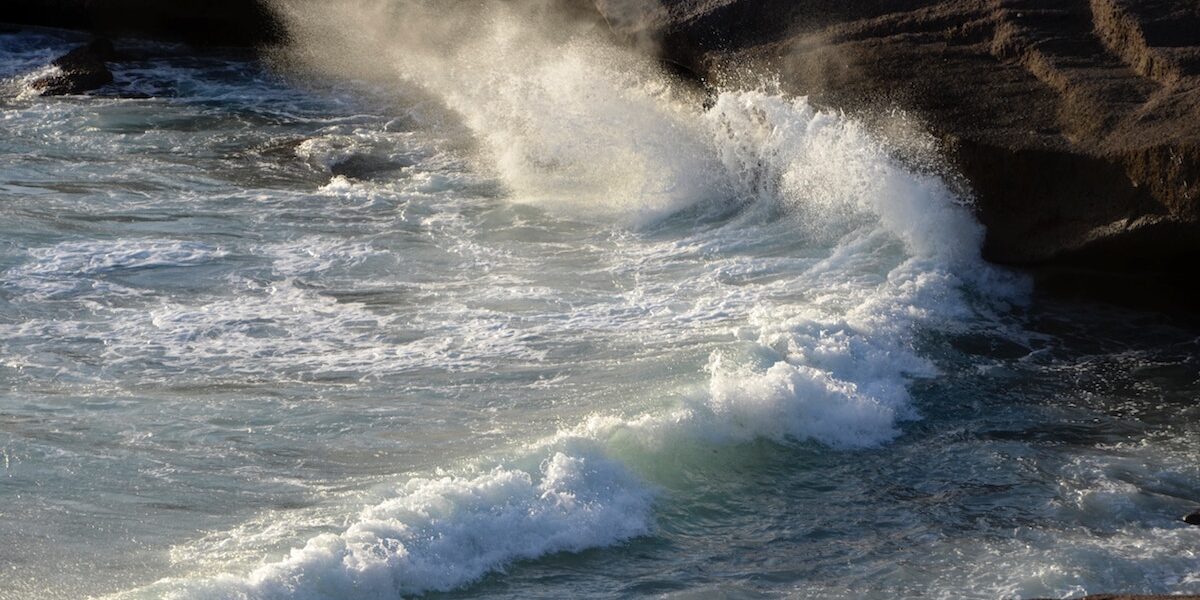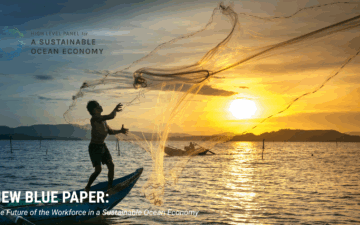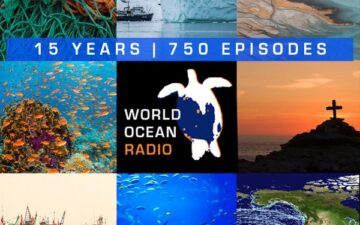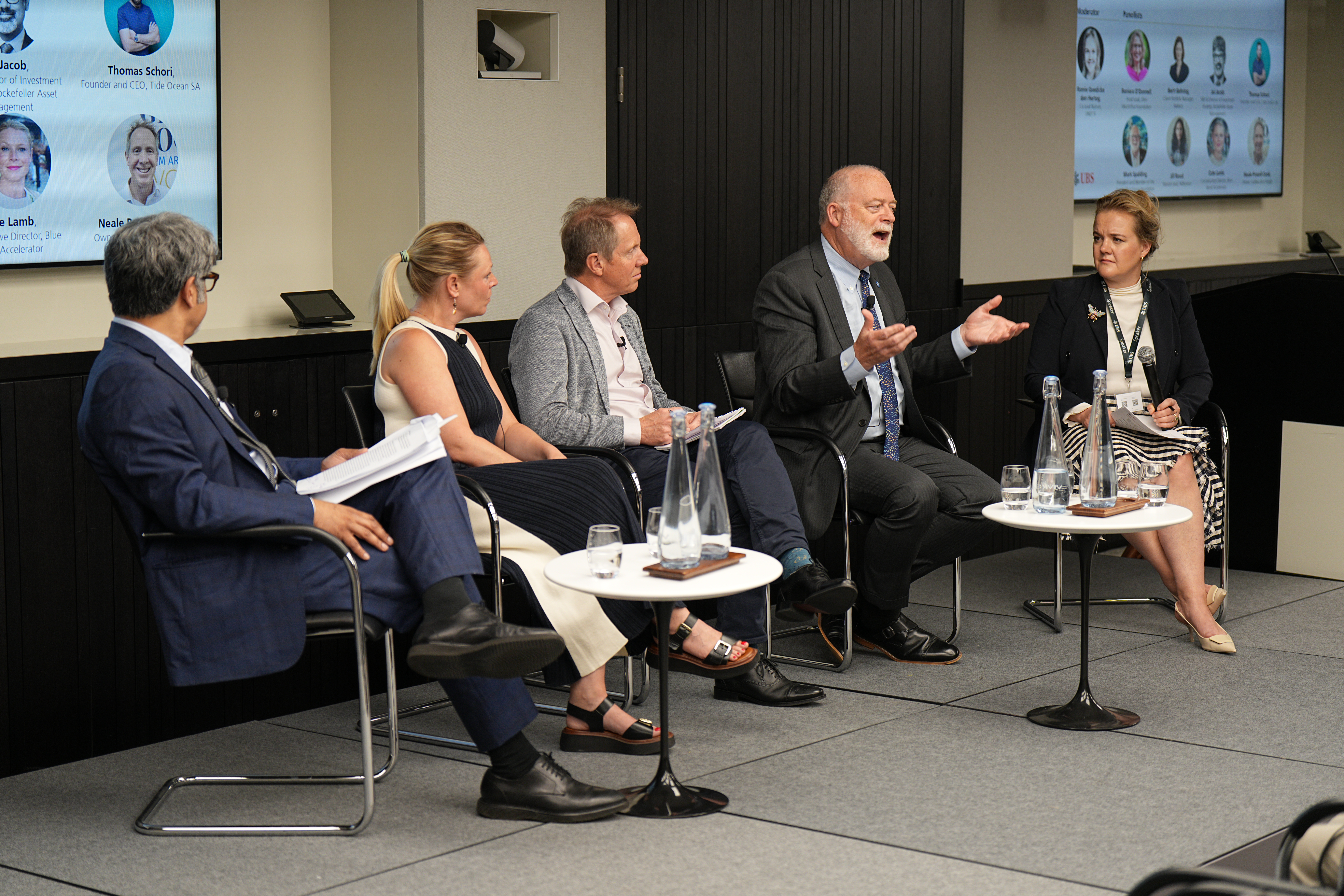By: Matthew Cannistraro
Reagan’s ideological opposition to the treaty hid under a patina of public pragmatism. This approach clouded the terms of the debate over UNCLOS that followed his presidency leading to opposition based on ideological concerns and not the interests of our marine industries. This opposition has enjoyed success because their positions resonated well with a few key senators. However, in the long-run pragmatic concerns will override ideological ones and these opponents will lose their relevance.
Reagan’s public positions on UNCLOS did not match his private opinions on the treaty. Publicly, he identified six specific revisions that would make the treaty acceptable, anchoring his pragmatism. Privately, he wrote that he “would not sign the treaty, even without the seabed mining section.” Moreover, he appointed vocal treaty opponents, who all held ideological reservations, as his delegates to the negotiations. Despite a veneer of public pragmatism, Reagan’s private writings and delegate appointments confirm his own deep ideological reservations.
Reagan’s actions helped to coalesce a durable anti-UNCLOS consensus among conservative thinkers anchored in idealism yet veiled with pragmatism. In 1994, a renegotiation of UNCLOS produced a revised treaty that addressed most of Reagan’s stated concerns over the seabed mining section. Yet ten years after the renegotiation, Jean Kirkpatrick, Reagan’s ambassador to the UN commented on the revised treaty, “The notion that the oceans or space are the ‘common heritage of mankind’ was—and is—a dramatic departure from traditional Western conceptions of private property.” This statement cements her ideological opposition to the foundation of the treaty, consistent with Reagan’s private convictions.
The sea has never been “property.” Kirkpatrick, like many conservative opponents of the treaty, is shoehorning the ocean into her ideology, instead of cultivating a position founded on the realities of ocean use. Most arguments against the treaty follow the same pattern. One Heritage Foundation scholar summed up conservative realist opposition, writing “The US Navy ‘locks in’ its rights and freedoms…by its capacity to sink any ship that would try to deny those rights,” and not by ratifying UNCLOS. While this may be true for the Navy, as we saw in Ecuador, our fishing and merchant ships cannot all have military escorts and ratifying UNCLOS will help to ensure their security.
Isolationists argue that UNCLOS will become as unfriendly to the US as the UN is to the US itself. But the ocean is a global resource, and international cooperation is required to manage it. The unilateral assertions of sovereignty that followed Truman’s proclamations led to instability and conflict around the world. Dismantling UNCLOS, as these isolationists suggest, would usher in a new era of the instability reminiscent of the period following Truman’s proclamations. This instability bred uncertainty and risk, hindering investment.
Free-market conservatives argue the parallel system impedes competition. They are right, yet unfettered competition for ocean resources is not an efficient approach. By bringing leaders from around the world together to manage undersea minerals, we can try to ensure that firms cannot scrape profits from the seafloor, with disregard for the wellbeing of current and future generations. More importantly, the ISA provides the stability necessary for the near billion-dollar investment required to start mining. In short, UNCLOS opponents apply terrestrial political ideologies to a resource beyond the scope of that discourse. In doing so, they also ignore the needs of our marine industries, all of which support ratification. Taking a position that resonates with conservative Republican Senators, they have ginned up enough opposition to prevent ratification.
The key lesson to take away from this struggle is that as the ocean and the way we use it change, we must evolve our governance, technology, and ideologies to meet the challenges those changes present. For centuries, the Freedom of the Seas doctrine made sense, but as ocean uses changed, it lost its relevance. By the time Truman issued his 1945 proclamations, the world was in need of a new approach to ocean governance. UNCLOS is not a perfect solution to the governance problem, but neither is anything else that has been proposed. If we ratify the treaty, we can negotiate new amendments and continue to improve UNCLOS. By remaining outside the treaty, we can only watch as the rest of the world negotiates the future of ocean governance. By obstructing progress, we lose our chance to shape it.
Today, climate change compounds change in ocean use, ensuring both the ocean and the way we use it are transforming more rapidly than ever. In the case of UNCLOS, opponents have been successful because their ideological position resonates well with politicians, but their influence stops at the Senate. Their short run success has sewed the seeds of an eminent demise, as advances in technology will compel us to ratify the treaty once industry support becomes insurmountable. These opponents will have little relevance in discussions after this shift; just as Reagan’s delegation lost its support in negotiations after vacillating. However, those who embrace the political, economic, and environmental realities of ocean use will have a great advantage in shaping its future.
Reflecting on the thirty years since UNCLOS, our failure to ratify the treaty looms large. This failure was the result of an inability to properly frame the debate in pragmatic terms. Instead, ideological compasses that ignored the economic and environmental realities of ocean use have steered us towards a dead end. In the case of UNCLOS, supporters eschewed political concerns and failed to achieve ratification as a result. Moving forwards, we must remember that sound ocean policy will be built by keeping political, economic, and environmental realities in mind.
Matthew Cannistraro worked as a research assistant at the Ocean Foundation in spring of 2012. He is currently a senior at Claremont McKenna College where he is majoring in History and writing an honors thesis about the creation of NOAA. Matthew’s interest in ocean policy stems from his love of sailing, saltwater fly-fishing, and American political history. After graduation, he hopes to utilize his knowledge and passion to effect positive change in the way we use the ocean.







